Nigerian Naira Casinos – Best Sites for Nigerian Players


Nigerian Naira
Code: NGN
Symbol: ₦
Popularity: 89.15%
Number of Casinos: 90
Countries using NGN
The Highest Ranked Casinos Accepting Nigerian Naira (NGN) on CasinoLandia
At CasinoLandia, we've meticulously reviewed and ranked the top casinos that accept Nigerian Naira (NGN) as a preferred currency for your online gambling experience. Our rigorous evaluation process considers factors like game variety, security, customer support, and payment options. Rest assured that the casinos featured on our platform not only support NGN but also provide an exceptional gaming environment. Explore our comprehensive list to find the highest-ranked casinos that cater to the Nigerian Naira, ensuring a seamless and enjoyable betting adventure.
Top 10 best casinos
$titl$ is RESTRICTED IN United States. Our Current Top Picks for United States are below:
What is the Nigerian Naira (NGN)
The Nigerian Naira (NGN) is the official currency of Nigeria, a vibrant and populous country located in West Africa. Introduced in 1973 to replace the Nigerian Pound, the Naira is denoted by the symbol “₦” and is further subdivided into 100 kobo. As the sole legal tender in Nigeria, the Naira plays a pivotal role in the nation's economic landscape.
Nigeria's central bank, the Central Bank of Nigeria (CBN), is responsible for issuing and regulating the Naira. The bank's objective is to maintain stability in the currency and ensure its value. The Naira has undergone various changes over the years, including the transition from paper banknotes to polymer notes, which are more durable and resistant to wear and tear.
The currency has faced some challenges, such as fluctuating exchange rates, inflation, and counterfeiting issues. However, the Nigerian government and the CBN have taken measures to address these concerns and enhance the Naira's integrity and stability.
Nigerian Naira banknotes feature images of prominent figures in the country's history, cultural symbols, and notable landmarks. These banknotes come in various denominations, from the smaller denominations like ₦5 and ₦10 to the higher values of ₦100, ₦200, ₦500, and ₦1000. Coins, in the form of kobo, are less commonly used in everyday transactions but are still part of the currency system.
Understanding the Nigerian Naira is vital not only for residents but also for individuals and businesses engaged in trade and finance with Nigeria. Its exchange rate against other foreign currencies is essential for international trade and investment. The Naira's value is subject to market forces, and its exchange rate can fluctuate in response to various economic factors and global market conditions.
Key Facts about the Nigerian Naira
| Symbols | ₦ |
| Nicknames: | None |
| ISO 4217 code: | NGN |
| Central Bank: | Central Bank of Nigeria |
| Currency Subunits: | Kobo = 1/100 of a Naira |
| Banknote Denominations: | 5, 10, 20, 50, 100, 200, 500, 1,000 naira |
| Coin Denominations: | Coins: ½, 1, 5, 10, 25, 50 kobo. 1, 2 naira |
| Countries using this currency: | Nigeria |
| Currencies pegged to NGN: | No currencies |
| NGN is pegged to: | No currencies |
The Top 5 Nigerian Naira Casinos Explained
A detailed examination of the advantages and fundamental quality benchmarks of our top 5 casinos that transact in Nigerian Naira.
No results were found!
Nigerian Naira – History and Tradition
Rich Tapestry of Pre-Colonial Exchange and Emergence of Central Banking
In the vibrant tapestry of Nigeria's pre-colonial era, diverse cultures and regions employed a fascinating array of items as mediums of exchange. Cowrie shells, manilas, beads, bottles, and salt weren't merely currency; they embodied the intricate tapestry of indigenous traditions.
The colonial ordinance of 1880 marked a pivotal shift, introducing Shillings and Pence as the official currency for British West Africa. Coins like the one shilling, one penny, 1/2 penny, and 1/10 penny, originating from the Bank of England, were disseminated through the Bank for British West Africa. This colonial era set the stage for the emergence of central banking.
West African Currency Board Era and the Transition to National Identity
From 1912 to 1959, the West African Currency Board (WACB) took charge of issuing banknotes and coins in Nigeria, Ghana, Sierra Leone, and the Gambia. It was an era of regional financial authority, with the highest banknote denomination being one pound and the one shilling coin as the premier coin denomination.
In 1959, the Central Bank of Nigeria (CBN) came into existence, marking the birth of Nigerian currency. It was a significant milestone as Nigerian currency banknotes were introduced, phasing out the WACB-issued notes and coins. The design evolved in 1962 to reflect Nigeria's republican status, transitioning from ‘FEDERATION OF NIGERIA' to ‘FEDERAL REPUBLIC OF NIGERIA' inscribed at the top. This transition marked a vital step in defining a national identity.
Currency Evolution and Commemorating National Heroes
1968 witnessed further currency changes due to the misuse of banknotes during the civil war. Subsequent modifications in 1973, accompanying the shift from the metric to decimal system, were instrumental in shaping the currency landscape.
February 11, 1977, marked the introduction of a new ₦20 banknote, featuring General Murtala Ramat Muhammed, a prominent figure in Nigerian history. This was a tribute to a national hero. 1979 saw the introduction of new currency banknotes in denominations of ₦1, ₦5, and ₦10, adorned with the portraits of three eminent Nigerians who had been declared national heroes.
Colorful Transition, Coining, and Economic Needs
In April 1984, the colors of all banknotes underwent a transformation to counter currency trafficking. In 1991, both the 50 Kobo and ₦1 denominations were transitioned to coins.
To support an expanding economy and foster an efficient payment system, ₦100, ₦200, ₦500, and ₦1000 banknotes were introduced between December 1999 and October 2005. This represented the country's proactive approach to meeting economic demands.
Technological Advancements, Commemorations, and Polymer Substrate
In a bid for economic reform and modernization, the CBN introduced a polymer ₦20 note on February 28, 2007. Simultaneously, the ₦50, ₦10, and ₦5 banknotes were reissued with new designs, and the ₦2 coin was introduced, showcasing advancements in currency technology.
To celebrate Nigeria's history, the Central Bank issued commemorative notes. On September 29, 2010, the ₦50 Commemorative polymer banknote was introduced, followed by the N100 Commemorative banknote on December 19, 2014, marking the nation's 50th independence anniversary and 100 years as a nation. These notes stand as historical milestones, reflecting the nation's journey and achievements on the global stage.
Advantages of Using Nigerian Naira (NGN)
| Advantage | Description |
|---|---|
| Stability | The Nigerian Naira has shown increased stability in recent years, making it a reliable choice for financial transactions. |
| Local Acceptance | NGN is widely accepted within Nigeria for everyday transactions, making it convenient for residents and businesses. |
| Accessibility | Access to NGN is relatively straightforward, as it is readily available through banks, ATMs, and currency exchange services. |
| Investment Opportunities | Nigeria's growing economy offers a range of investment opportunities, and using NGN can simplify your financial activities. |
| International Trade | NGN is accepted for international trade, allowing businesses to engage in cross-border transactions. |
| Resilience | Despite economic challenges, the NGN has shown resilience and adaptability, making it a viable choice in diverse financial scenarios. |
| Diverse Payment Options | NGN can be used for various payment methods, including cash, electronic transfers, and digital wallets. |
| Government Support | The Nigerian government actively promotes and supports the use of NGN for both local and international transactions. |
| Exchange Rate Stability | NGN exchange rates have improved, reducing the volatility often associated with some emerging market currencies. |
| Financial Inclusion | Efforts to enhance financial inclusion have made NGN accessible to a broader population, ensuring economic participation for all. |
Payment Methods with Nigerian Naira (NGN)
Using Nigerian Naira (NGN) opens up a world of convenience when it comes to payment methods. The versatility of NGN extends to various payment channels, making it adaptable to the modern digital age. From traditional cash transactions to electronic transfers and digital wallets, NGN offers a spectrum of payment options to cater to the diverse needs of individuals, businesses, and investors. With the ongoing advancement in financial technology and banking services, it's easier than ever to access and utilize NGN for seamless and secure financial transactions. This flexibility in payment methods ensures that NGN remains a practical and user-friendly currency, making it a preferred choice for both domestic and international financial activities.
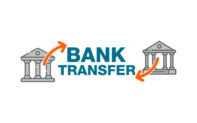

Find the Greatest Nigerian Naira (NGN) Casinos
The Majority Markets That Accept Nigerian Naira (NGN)
The Nigerian Naira (NGN) is primarily used within Nigeria and is not commonly accepted in majority markets outside the country. While NGN is the official currency of Nigeria and widely used for domestic transactions, its acceptance outside Nigeria is limited. The currency's primary use and acceptance are confined to the borders of Nigeria, making it essential for residents and businesses within the nation's territory but less relevant for international markets. When considering transactions or investments beyond Nigeria, it's important to be aware of the currency exchange and payment methods required in the specific markets you intend to engage with.
Other Popular Currencies in Online Casinos
Visit the Capital of CurrencyLandia at the heard of CasinoLandia for info on each of the major currencies on Earth.
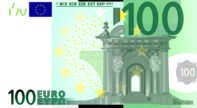

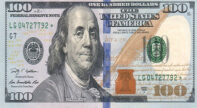





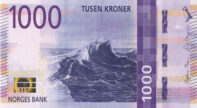

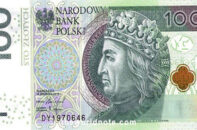











Common Asked Questions for Nigerian Naira (NGN) Casinos
We are eager to respond to your questions!
How can I deposit and withdraw using Nigerian Naira at an online casino?
Depositing with NGN:
- Sign up or log in to your online casino account.
- Visit the cashier or banking section.
- Select NGN as your preferred currency.
- Choose your desired deposit method (credit card, bank transfer, e-wallet, etc.).
- Enter the deposit amount in NGN.
- Follow the on-screen instructions to complete the transaction.
Withdrawing with NGN:
- Log in to your casino account.
- Visit the cashier or banking section.
- Select NGN as your currency for withdrawal.
- Choose your preferred withdrawal method.
- Enter the withdrawal amount in NGN.
- Follow the provided withdrawal instructions.
- Wait for the casino to process and approve your withdrawal.
Are there any fees associated with Nigerian Naira transactions at online casinos?
Fees associated with NGN transactions can vary depending on the casino and the payment method used. Many online casinos aim to minimize fees, and some even offer fee-free transactions. However, certain payment methods, such as bank transfers or credit cards, may incur nominal fees, which should be transparently stated by the casino or payment provider. It's advisable to check the casino's terms and conditions and the specific payment method's fee structure to understand any potential charges.
What are the advantages of playing at a Nigerian Naira casino?
Playing at an NGN casino offers several advantages, including:
- Convenience: Transactions in your local currency.
- Reduced Currency Exchange Costs: Avoiding foreign exchange fees.
- Support for Local Payment Methods: Access to payment options familiar to Nigerians.
- Promotions and Bonuses: Some casinos offer special NGN bonuses.
- Customer Support: Assistance in your local language and time zone.
What are the popular payment methods available at Nigerian Naira casinos?
Nigerian Naira casinos typically offer a variety of payment methods, including:
- Bank Transfers
- Credit and Debit Cards
- E-wallets (e.g., PayPal, Neteller, Skrill)
- Mobile Payment Solutions
- Prepaid Cards
These options cater to various preferences and security needs.
Can I set deposit and spending limits at Nigerian Naira casinos?
Yes, many NGN casinos provide responsible gambling features that allow you to set deposit limits, spending limits, and self-exclusion periods. These tools help you manage your gambling activity and promote a safe and enjoyable gaming experience. You can access these features in your account settings or by contacting customer support for assistance.
CasinoLandia's Summary of Nigerian Naira Casinos
When it comes to online casinos that cater to players using Nigerian Naira (NGN), there's a wealth of options available. Our platform offers comprehensive guides, expert reviews, and up-to-date information to help you navigate this exciting world of NGN casinos. We've carefully curated a list of the finest NGN casinos, ensuring you can enjoy a secure and entertaining gaming experience while using your local currency. From deposit and withdrawal methods to game selection and customer support, our detailed insights empower you to make informed choices, enhancing your online gambling adventure. Trust CasinoLandia as your trusted companion in the realm of Nigerian Naira casinos, where the thrill of gaming meets the convenience of your home currency.








